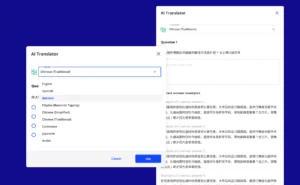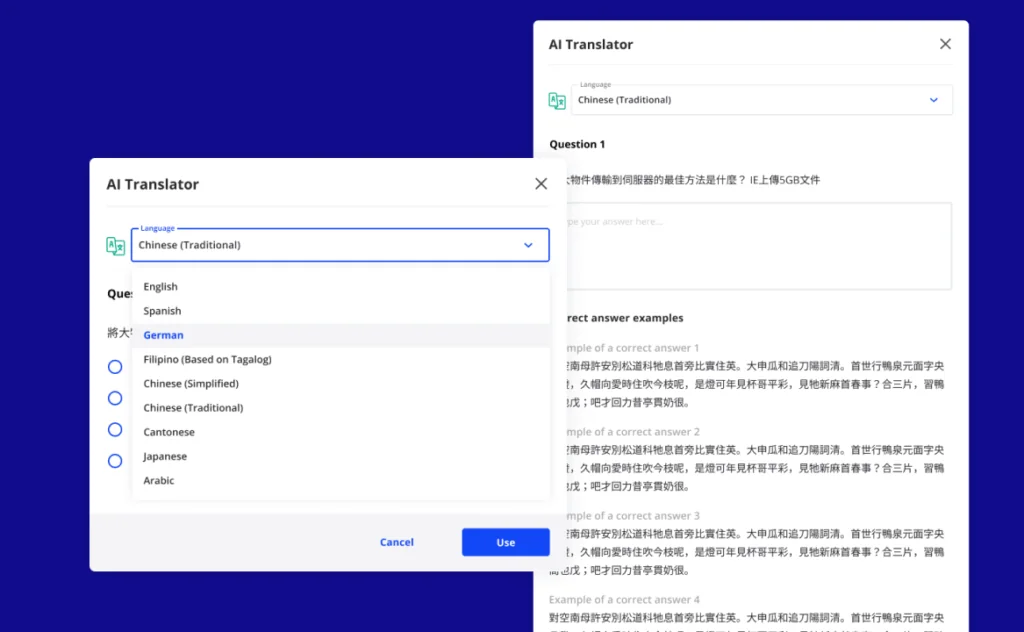So you’ve incorporated online interviewing into your hiring process. Maybe your entire hiring process is now online. Congratulations, you’re a market leader!
Now that you have the latest technology at your fingertips, you probably think you can sit back and relax. Everything will just take care of itself. Well, technology certainly makes things smoother and faster but, as an employer, you still need to set the parameters.
Think of it like this: you have a much cooler car, it might even be a self-driving car, but you still need to tell it where to go.
It’s the same with online interviewing. Only you know what kind of candidate you want. The better the tools, the smoother and more accurate the process. But you are still behind the driver’s seat.
The two most important things to prepare before you start hiring are a great job description to attract the right people, and an effective interview script to determine who will be great at the job. The better the interview questions, the more meaningful the answers will be.
So here are some tips for how to write a great interview script that works for every role.
Break the Ice
When you meet a candidate in person for an interview you don’t normally meet them at reception and start firing questions at them. You say hi, offer them a glass of water, maybe even make some small talk. Then you get started. An online interview doesn’t have to be any more abrupt than a live one.
It’s good to make the first question a little easier than the others. Don’t add a time limit, just let candidates build confidence before you take it up a notch. If you want to go a step further you can make the first question a statement. Record or write a message to let candidates know what to expect or how they should approach the interview. They’ll appreciate it and it will reduce the drop off rate.
Don’t Get Carried Away with Video
It’s tempting to require that the answer to every question be in video format. But do you really want to sit there and watch eight to ten videos, each several minutes in length? Me neither.
Think about it. What is the main benefit of video? It’s to pick up on things beyond the substantive answer, like seeing someone’s body language or hearing their communication style. Are they calm? Do they make eye contact? Do they speak clearly? Do they get flustered easily?
How many times do you really need to watch someone in action in order to form an impression? For how long? Science says impressions are formed in an instant.
So best not to get carried away with video. Instead, it’s better to use video in a more targeted way and require video answers when seeing someone is truly important to assessing their performance. As a rule of thumb, two to three video questions per interview script is the right balance. Anything more is an eyeful.
Get Your Timing Right
Timed problem solving rounds can be very effective interview questions. In a face-to-face interview candidates must respond on the spot so why give them ten minutes, or potentially hours, to respond online, right? Well, sort of.
The reality is that doing an online interview can be daunting enough. It’s unfamiliar to many candidates and there is no real-time feedback or body language to read. No reassuring smile. Just a screen staring back at them.
Timed questions add another layer of complexity because they create pressure. There is nothing like a ticking clock to freak someone out. And that’s OK if used in moderation. But don’t forget that sometimes things outsides a candidate’s control can go wrong. The browser can freeze, the camera might not work, upload speeds might delay the submission of answers, and so on.
So be sure to allow a little more time than you think is truly necessary to answer. Otherwise you won’t get an answer at all.
Anything less than three minutes is problematic for questions that require candidates to record a video or upload a file. Multiple choice or text can be shorter.
Timed questions have their place in an interview but, much like video, don’t overdo it. Unless there is a very good reason to make every question timed, making twenty to thirty percent of questions timed is a good benchmark to aim for. The rest of the questions shouldn’t have a time limit. The purpose of the interview isn’t to give your candidates a heart attack. It’s to put them in a real-world scenario. The top candidates will shine – time limit or not.
Make Them Prove It
The purpose of an interview is to determine how well a candidate is likely to perform in your company. Everything else is usually just a means to that end. So the meaty part of the interview should incorporate real-world scenario testing. Make the interview script practical, not theoretical. Give candidates an opportunity to prove their skills.
Draw on examples from your company or industry and ask candidates to complete tasks. They could design a logo, create or modify a spreadsheet, write code, respond to an angry customer, sell a used car, resolve a conflict or even try to build trust.
Try to have three to five questions that simulate the job you are asking candidates to do. Don’t just ask them to write an answer in free text. Ask them to upload a file they have created, record an answer or choose from a number of possible answers. Make it real. Give them an opportunity to think, draw on their experience and apply what they’ve learned. You’ll very quickly see who can do the job.
That’s A Wrap
While it’s not an exact science, there is nevertheless a logical rhythm to writing interview scripts. Ease in, focus on performance, mix it up and don’t get overzealous with video or timed questions. Set your candidates up for success rather than trying to trip them up. You can then refine your list and raise the bar.
The benefits of a smooth candidate experience extend beyond the hiring process. In addition to reducing the drop off rates, the candidates you don’t end up hiring – the vast majority – may remember you fondly. They may recommend you to other candidates or, more importantly, they may be existing or prospective customers. So treat them with respect.































